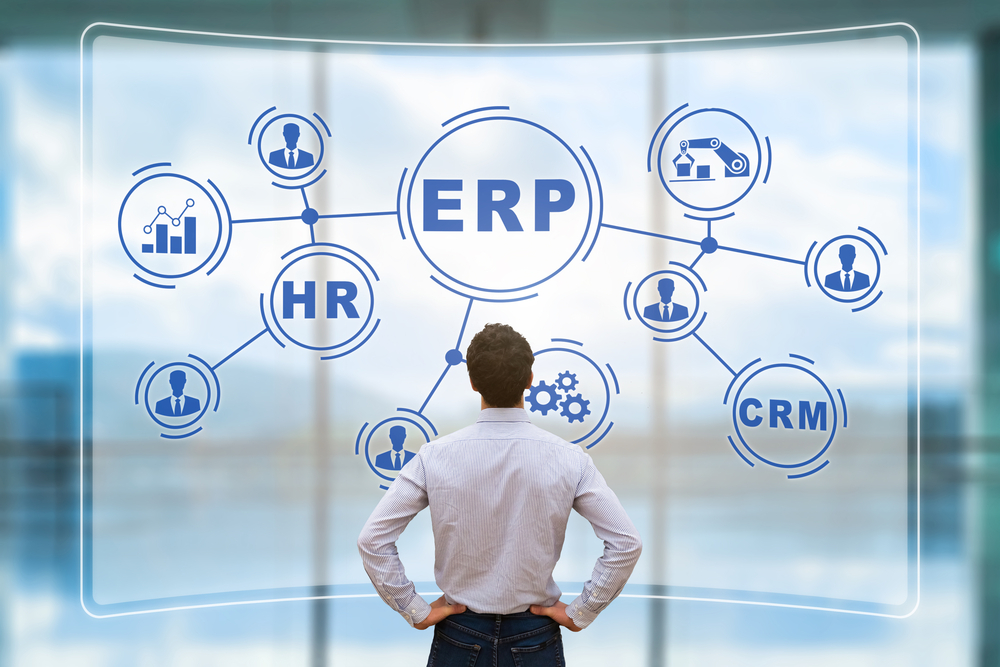Getting an ERP solution for your company is a significant undertaking. In addition to considering the time and resources it takes to implement an ERP system, there is a wide array of other factors you need to evaluate. As it’s such a big decision, you’d naturally want to know everything can about ERP solutions. However, between all the information and advice you’ll receive, it becomes more difficult to discern the facts from the fiction. Over the course of this blog, we’ll dispel some of the common misconceptions that surround ERP systems.
ERP Solutions are Time-Consuming & Costly
Perhaps the most common myth about custom ERP systems is that they’re only good on paper and it takes too much time and resources to implement them in real life. Although this might’ve been the case years ago, with complicated ERP systems taking time to be implemented, it’s a completely different scenario now. The methodologies used to develop ERP systems have drastically changed over the years. Vendors are now able to deliver the project in segments, with each module being delivered as soon as it’s ready. Consequently, ERP implementations are now completed within a few short weeks.
Secondly, ERP systems have become much more affordable. Thanks to the emergence of cloud solutions, businesses can now opt for Software as a Service (SaaS) when it comes to ERP solutions. The rising demand for ERP systems has increased the competition in the market, which has resulted in custom software becoming much more affordable for businesses.
ERPs Are Only Beneficial for Large Companies
This is a misconception that stems from a misunderstanding of what ERP systems actually do. Essentially, the job of an ERP system is to automate processes and eliminate redundancies across all departments of an organization, making the business more efficient. These benefits can be enjoyed by businesses of all shapes and sizes. While an ERP is not a requirement of all SMEs, most of them can do with something more than just the basic system they currently have in place. Cloud-based ERP systems, specifically, have been a revelation for SMEs. Thanks to the greater adaptability of cloud-based systems, SMEs can now benefit from ERPs the same way large companies do.
An ERP System Produces Immediate Results
This is another common myth associated with ERP systems. Although some businesses are able to get immediate results, it’s worth remembering that custom ERPs aren’t a quick fix. A new ERP system can have a radical impact on the operations of an enterprise. In most cases, this change is often accompanied by a learning curve. Even after comprehensive training, your employees might require a little time to adjust and adapt to the new technology and integrate it successfully into their daily operations. Therefore, don’t be surprised if the initial progress seems slow. It might take time, but you’ll see the results soon enough.
ERP Only Impacts Internal Processes
Lots of people are under the impression that an ERP solution will only optimize their company’s internal processes by enhancing operational efficiency and eliminating human error. While an ERP system fulfills all of these purposes, it can also improve a company’s external processes. For instance, an ERP system can help you ensure that the right product is being delivered at the right time to the right customer. As far as we know, customer satisfaction is categorized as an external process.
Vendor Support Isn’t of Great Consequence
It’s extremely important to prioritize vendor support when it’s about implementing a new ERP system. Many large corporations have had to face difficulties because of poor support and bad management. Choosing a reputable ERP vendor is crucial. As your vendor will basically become your technology partner, they should be able and ready to provide assistance to you with any challenges you might face.
I Don’t Need Custom Solutions
For whatever reason, lots of business executives are reluctant about custom ERP solutions. A recent report by Panorama revealed that 91% of businesses opt to make customization during the implementation of the ERP, while the remaining 9% go for off-the-shelf solutions. Most of the minority is comprised of small companies whose business processes are simple and straightforward. However, if your business processes are complex and multi-layered, chances are that you’ll have to make some customizations in order to get the best out of your ERP system.
Not sure which ERP solution is best for your organization? Get in touch with us at gotomyerp. Being leading specialists in Sage and QuickBooks cloud hosting, we can help you narrow down the solution that is perfectly suited to your business needs.




